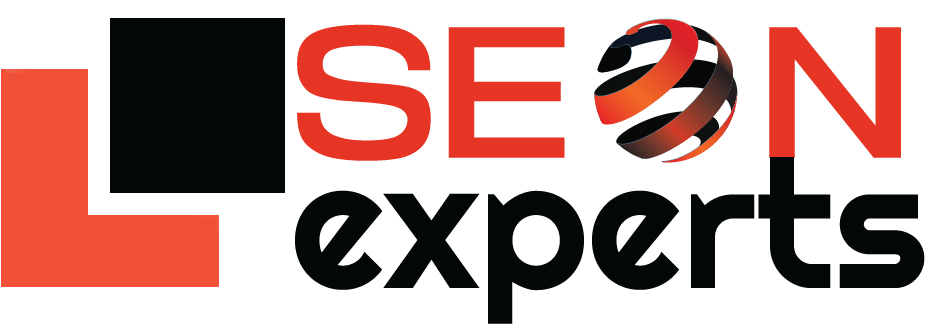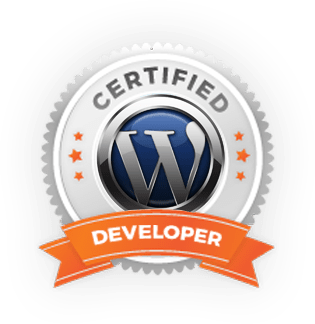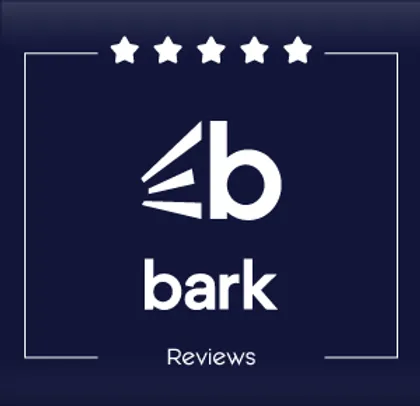In today’s digital age, achieving top rankings on search engine results pages (SERPs) is crucial for any business looking to thrive online. This is where SEO improvement services come into play. These services are designed to optimize your website, making it more visible and attractive to search engines like Google, Bing, and Yahoo. By leveraging these services, you can increase organic traffic to your site, improve user experience, and ultimately boost your revenue.
SEO improvement services encompass a variety of strategies, including keyword research, on-page optimization, content creation, and link building. Each of these components plays a vital role in enhancing your website’s performance and ensuring it meets the ever-evolving algorithms of search engines. Moreover, these services are not a one-size-fits-all solution; they are tailored to meet the specific needs of your business and industry.
At SEON Experts, we specialize in providing comprehensive SEO improvement services that are designed to deliver measurable results. Our team of experts uses advanced tools and techniques to analyze your website, identify areas for improvement, and implement effective strategies that drive traffic and conversions. Whether you’re a small business or a large enterprise, our goal is to help you achieve and maintain top rankings on SERPs.
Call us today at (817) 213-6090 to learn more about how our SEO improvement services can benefit your business. Let’s take your online presence to the next level!
Importance of High-Quality SEO Services

High-quality SEO services are indispensable in the digital marketing landscape. The importance of these services cannot be overstated, as they significantly impact your website’s visibility, credibility, and overall performance. Firstly, high-quality SEO services ensure that your website complies with search engine guidelines, which is crucial for achieving and maintaining top rankings. These services involve meticulous keyword research, ensuring that your content is both relevant and competitive in your industry.
Moreover, high-quality SEO services contribute to a better user experience. By optimizing the structure, speed, and mobile responsiveness of your site, these services make it easier for visitors to navigate and find the information they need. An improved user experience not only keeps visitors on your site longer but also reduces bounce rates, which positively influences your search engine rankings.
Another critical aspect of high-quality SEO services is content creation and optimization. Producing valuable, engaging, and keyword-rich content is essential for attracting and retaining your target audience. This form of content not only helps in ranking higher on SERPs but also establishes your brand as an authority in your niche. Additionally, quality SEO services often include link-building strategies that enhance your site’s domain authority and credibility.
Investing in high-quality SEO services is a long-term strategy that pays off by driving sustained organic traffic to your website. With the right expertise, you can achieve a significant return on investment, ensuring that your business remains competitive in the ever-evolving digital landscape.
Key Strategies for Effective SEO Improvement

Effective SEO improvement hinges on several key strategies that work in tandem to boost your website’s search engine rankings. One of the most crucial strategies is keyword optimization. This involves researching and selecting the most relevant keywords for your industry and integrating them naturally into your website’s content, meta descriptions, and headers. Using long-tail keywords can also be highly beneficial, as they often have lower competition and higher conversion rates.
Another essential strategy is on-page SEO. This encompasses optimizing individual web pages to rank higher and earn more relevant traffic. Key elements of on-page SEO include optimizing title tags, meta descriptions, and header tags, as well as ensuring that your content is high-quality, informative, and engaging. Additionally, improving the internal linking structure of your website can help search engines better understand the context and hierarchy of your content.
Technical SEO is also vital for effective SEO improvement. This involves optimizing the backend of your website to ensure that search engines can crawl and index your site efficiently. Key aspects of technical SEO include improving site speed, ensuring mobile-friendliness, and implementing SSL certificates for a secure connection. A well-structured XML sitemap and a clean URL structure also contribute to better technical SEO.
Off-page SEO, particularly link-building, is another critical strategy. Building high-quality backlinks from reputable sites increases your website’s domain authority and credibility, which in turn boosts your search engine rankings. Social media engagement and guest blogging are excellent ways to acquire valuable backlinks.
Lastly, regularly analyzing and adjusting your SEO strategies based on performance data is crucial. Utilizing tools like Google Analytics and Search Console allows you to track key metrics, identify areas for improvement, and refine your strategies to achieve better results over time.
Role of Content Optimization in SEO

Content optimization is a cornerstone of effective SEO strategies. It ensures that your web content is crafted in a way that makes it easily discoverable by search engines and highly engaging for users. The process begins with keyword research and integration. Identifying the right keywords that your target audience is searching for and seamlessly incorporating them into your content is crucial. This not only includes primary keywords but also related terms and synonyms that help search engines understand the context of your content.
Another key aspect of content optimization is creating high-quality, valuable content that meets the needs of your audience. Search engines prioritize content that provides genuine value, so it’s essential to focus on producing informative, well-researched, and engaging articles, blog posts, and web pages. Content should be original, free from plagiarism, and structured in a way that is easy to read, with clear headings, subheadings, and bullet points where necessary.
Meta tags and descriptions also play a significant role in content optimization. These elements provide search engines with essential information about your content and are often the first thing users see in search results. Crafting compelling and relevant meta descriptions can improve click-through rates and drive more traffic to your site.
Additionally, utilizing internal and external links within your content helps to establish credibility and provide additional value to readers. Internal links guide users to other relevant pages on your site, improving navigation and reducing bounce rates. External links to authoritative sources can enhance the reliability of your content and build trust with your audience.
Lastly, regularly updating and refreshing your content is crucial. Search engines favor fresh content, so periodically revisiting older posts to update information, add new insights, or improve readability can significantly impact your SEO performance.
Technical SEO Enhancements for Better Rankings
Technical SEO enhancements are imperative for improving your website’s search engine performance and achieving better rankings. Unlike content optimization, which focuses on the visible elements of your website, technical SEO deals with the backend aspects that influence search engine crawling and indexing.
One of the foundational elements of technical SEO is ensuring your website is mobile-friendly. With a significant portion of web traffic coming from mobile devices, search engines prioritize sites that offer a seamless mobile experience. This includes responsive design, fast loading times, and easy navigation.
Another critical factor is site speed. Search engines like Google factor load times into their ranking algorithms. Slow-loading websites can lead to higher bounce rates, which negatively impact your rankings. Optimizing images, leveraging browser caching, and minimizing JavaScript can significantly improve your site’s speed.
XML sitemaps and robots.txt files are also essential components of technical SEO. An XML sitemap helps search engines understand the structure of your website and find all your pages, while the robots.txt file guides search engines on which pages to crawl and index.
Technical SEO also involves structured data markup, which helps search engines understand the content of your pages better. Implementing schema markup can enhance your search listings with rich snippets, improving click-through rates and driving more traffic to your site.
Furthermore, ensuring your website has HTTPS encryption is crucial for security and user trust. Search engines favor secure websites, and HTTPS has become a ranking factor.
Lastly, fixing broken links and ensuring there are no crawl errors are essential for maintaining a healthy website. Regularly auditing your site for technical issues and resolving them promptly can help maintain optimal performance and rankings.
Tracking and Measuring SEO Success

Tracking and measuring SEO success is a crucial aspect of any SEO strategy. Without proper tracking, it is impossible to determine the effectiveness of your SEO efforts and make data-driven decisions to enhance your online presence.
One of the primary tools for monitoring SEO success is Google Analytics. This powerful tool provides detailed insights into your website traffic, including the number of visitors, their behavior, and the sources of your traffic. By analyzing these metrics, you can identify which strategies are working and which need improvement.
Google Search Console is another indispensable tool for measuring SEO performance. It offers valuable data on how your website appears in search results, the keywords driving traffic, and any issues affecting your site’s visibility. Regularly reviewing this data helps you understand your site’s performance and optimize accordingly.
Additionally, keyword rankings are a direct indicator of SEO success. Tools like SEMrush and Ahrefs allow you to track the rankings of your targeted keywords over time. Monitoring these rankings helps you gauge the effectiveness of your keyword strategies and make necessary adjustments.
Backlink analysis is another key component of tracking SEO success. High-quality backlinks from reputable sources enhance your site’s authority and improve rankings. Tools like Moz and Majestic provide comprehensive backlink profiles, enabling you to monitor your link-building efforts.
Moreover, assessing conversion rates and goal completions is essential for understanding the ROI of your SEO campaigns. By setting up goals in Google Analytics, you can track actions that are valuable to your business, such as form submissions, purchases, or newsletter sign-ups.
To ensure continuous improvement, it’s vital to perform regular SEO audits. These audits help identify technical issues, content gaps, and opportunities for optimization. By addressing these areas, you can maintain and enhance your SEO performance.
For expert guidance on tracking and measuring your SEO success, call us today at (817) 213-6090. Our team at SEON Experts will help you unlock the full potential of your SEO efforts.






